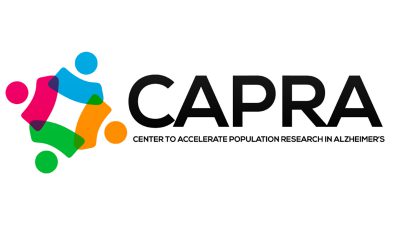a Symposium
Thursday, 09/09/2021, 9:00 am. ARCHIVED EVENT
Location: Online
The Michigan Center to Accelerate Population Research in Alzheimer’s (CAPRA) will host its inaugural research pilot symposium on Thursday, September 9th from 9:00 am – 10:30 am. The symposium will showcase the work of the Year 1 CAPRA Research Pilot Program awardees whose research focuses on population-based projects that aim to reduce the health and financial burden of dementia and improve government and healthcare organization policy. Each awardee will briefly present at the symposium and engage in discussion and q&a at the conclusion of all presentations.
To attend, please register using the link below:
CAPRA Research Pilot Symposium: REGISTER HERE
Thursday, September 9th, 9:00 am-10:30 am EST
We kindly ask that you register by 12:00 pm EST on Wednesday, September 8th.
About the Center to Accelerate Population Research in Alzheimer’s (CAPRA): CAPRA is a federally funded P30 Research Center based at the University of Michigan with a focus on science that informs government and healthcare organization actions to address the negative impacts of dementia on the health and financial wellbeing of individuals and the population. CAPRA’s has four interrelated themes: (1) healthcare delivery and policy impact on outcomes and quality of care for persons with dementia; (2) diffusion of new technologies; (3) disparities in quality and access to care; and (4) innovative applications of population data that inform allocation of resources and program development. Additionally, CAPRA provides an “on-ramp” for early and established investigators in the field of Alzheimer’s Disease and Alzheimer’s Disease Related Dementias (AD/ADRD) by providing access to established investigators in the field, pilot funding, and methods and tools specific to AD/ADRD for secondarily analysis of data sets. The research that emanates from CAPRA will have real world implications for payers and policymakers as they struggle with designing effective policies to improve outcomes for the growing population with or at risk for AD/ADRD.

